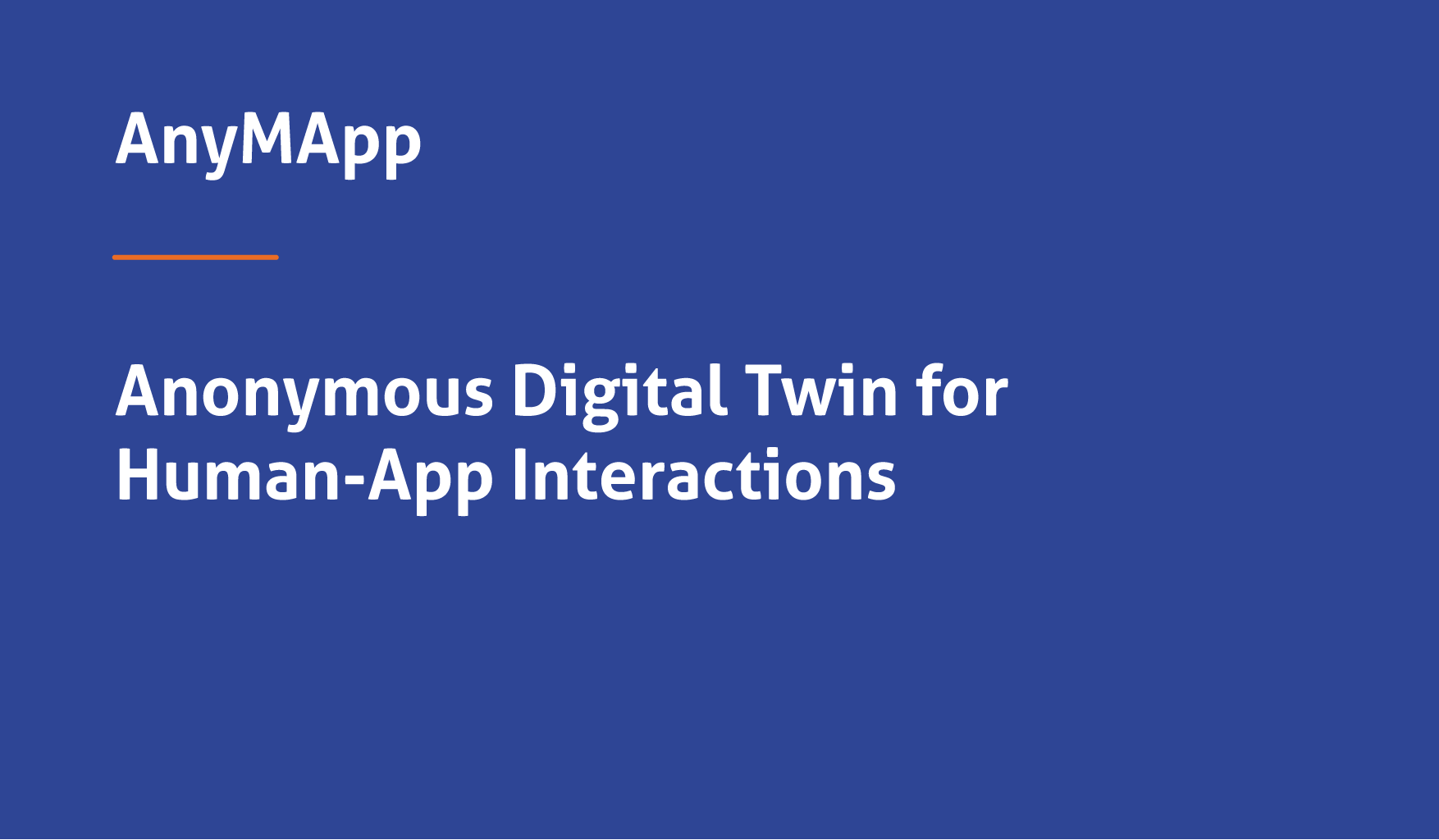Project Description
AnyMApp – Anonymous Digital Simulator for Human-Mobile Application Interactions
AnyMApp is an exploratory project aiming to design and implement an Anonymous Digital Simulator to analyze the interactions between humans and mobile applications online. The project will allow researchers and others to benefit from an easy way to detect interaction and usability problems, as well as to test users’ preferences and adherence factors to mApps (before, during and after mApps development).
Abstract
There is an increasing use of mobile applications (mApps) to perform a wide variety of activities. However, the relationships and interactions between humans and technology, as well as their privacy and security, are currently considered major challenges. Either the advances and proposed solutions have not been sufficient to address this issue; or the technology is evolving faster than humans can adapt to it.
So what can be done to address the these challenges and accelerate the improvement of human-mApps interactions? On average, mApps lose 65% of their users in the first week, but mApps that are very popular only lose 35%. It is obvious that the success of an mApp depends a lot on its acceptance by its target users; therefore, information about their usage can help improve mApps in order to better capture users as well as promote their continued use. Analyzing mApps usage logs allows the identification of common usability problems and to determine to what extent the technology influences its user. Continued use of mApps can also be determined by factors such as demographic variables or the situation the user is in, and different approaches can be targeted to different users.
Testing the technology is ideal, but testing the usability and acceptance of a given technology in a laboratory environment is usually expensive, time consuming and other resources that are required to organize them must be spent. This is even more complicated in situations like the pandemic, where physical contact must be avoided. Other testing techniques such as surveys or interviews with or without statistical analysis can also generate biased conclusions because often, the correlation between the data provided by study participants and application usage data is not high (what you say you do is not exactly what you do). With this in mind, other means of evaluation are needed that include the collection and analysis of usage data and/or that integrate the implementation of new usability testing frameworks.
AnyMApp is an exploratory project to design and implement an Anonymous Digital Simulator to analyze interactions between humans and mobile applications (existing or not) online. The main goal is to provide an easy way, using simulated interfaces that, together with anonymously acquired user data, collect data regarding users’ interaction with mApps in specific contexts and for specific purposes, together with behavioral and perception data of their own interaction. The data collected will allow us to explore the creation and development of human-technology relationships and build interaction networks and communities for future analysis. The interfaces that can simulate any domain will be made available online, free of charge, so that data from different types of users, with different characteristics and experiences, can be collected.
AnyMApp will allow researchers and others to benefit from an easy way to detect interaction and usability problems, as well as test users’ preferences and adherence factors to mApps (before, during and after mApps development). The data collected will be anonymous, as well as its processing in accordance with the GDPR, to avoid/mitigate issues of ethics and privacy. However, the anonymous data will still be very useful in distinguishing various types of users and their characteristics.
The main methods of the project include exploring: 1) what data can be collected to be able to maintain its anonymization; 2) the most appropriate methods for collecting and processing mApps usage data from the simulated interfaces; 3) the most appropriate methods for collecting and processing user data via online surveys and correlating it with the data from 2); and 4) the most appropriate methods for disseminating the tool in question, as well as recruiting participants. Expected results include: 1) the online/open AnyMApp tool as a functional proof of concept to easily and quickly test real user interaction data with mApps; 2) identify and test multidisciplinary user data analysis methods to explore patterns, clusters and communities of usage as well as behaviors and factors influencing them; 3) an infrastructure for online dissemination and recruitment; and 4) great potential for innovation in the following areas: (a) usability, security and privacy; (b) risk behaviors, victimization; (c) risk analysis in mApps; and (d) improving detection of health problems (mental or physical).
Funding Institution
FCT – Portuguese Foundation for Science and Technology
Global Budget
49,999.58 EUR
CINTESIS Budget
49,999.58 EUR
Reference
EXPL/CCI-COM/0052/2021
Duration
01-01-2022 to 30-06-2023
CINTESIS Researchers Involved
Ana Margarida Leite de Almeida Ferreira (PI), Ricardo João Cruz Correia

